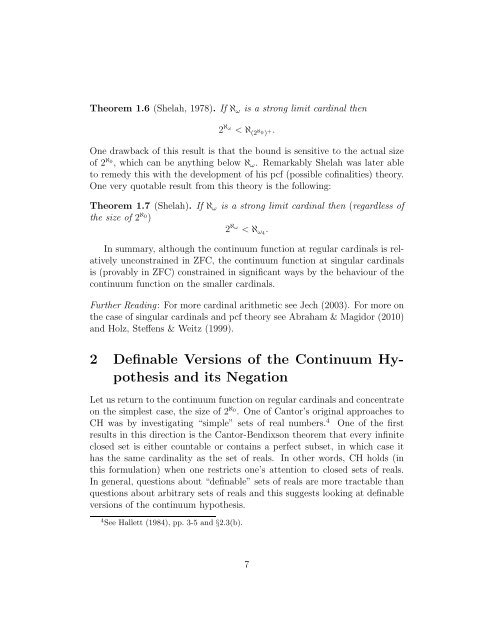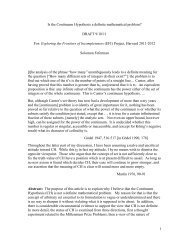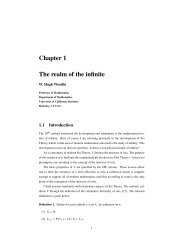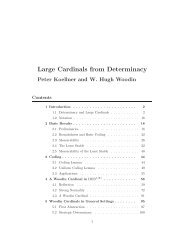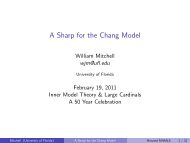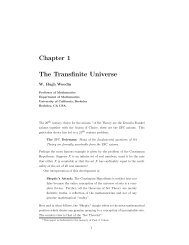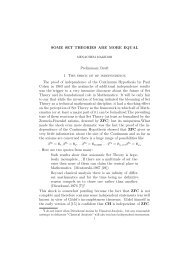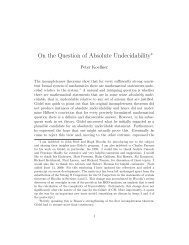The Continuum Hypothesis - Logic at Harvard
The Continuum Hypothesis - Logic at Harvard
The Continuum Hypothesis - Logic at Harvard
Create successful ePaper yourself
Turn your PDF publications into a flip-book with our unique Google optimized e-Paper software.
<strong>The</strong>orem 1.6 (Shelah, 1978). If ℵ ω is a strong limit cardinal then2 ℵω < ℵ (2 ℵ 0) +.One drawback of this result is th<strong>at</strong> the bound is sensitive to the actual sizeof 2 ℵ 0, which can be anything below ℵ ω . Remarkably Shelah was l<strong>at</strong>er ableto remedy this with the development of his pcf (possible cofinalities) theory.One very quotable result from this theory is the following:<strong>The</strong>orem 1.7 (Shelah). If ℵ ω is a strong limit cardinal then (regardless ofthe size of 2 ℵ 0)2 ℵω < ℵ ω4 .In summary, although the continuum function <strong>at</strong> regular cardinals is rel<strong>at</strong>ivelyunconstrained in ZFC, the continuum function <strong>at</strong> singular cardinalsis (provably in ZFC) constrained in significant ways by the behaviour of thecontinuum function on the smaller cardinals.Further Reading: For more cardinal arithmetic see Jech (2003). For more onthe case of singular cardinals and pcf theory see Abraham & Magidor (2010)and Holz, Steffens & Weitz (1999).2 Definable Versions of the <strong>Continuum</strong> <strong>Hypothesis</strong>and its Neg<strong>at</strong>ionLet us return to the continuum function on regular cardinals and concentr<strong>at</strong>eon the simplest case, the size of 2 ℵ 0. One of Cantor’s original approaches toCH was by investig<strong>at</strong>ing “simple” sets of real numbers. 4 One of the firstresults in this direction is the Cantor-Bendixson theorem th<strong>at</strong> every infiniteclosed set is either countable or contains a perfect subset, in which case ithas the same cardinality as the set of reals. In other words, CH holds (inthis formul<strong>at</strong>ion) when one restricts one’s <strong>at</strong>tention to closed sets of reals.In general, questions about “definable” sets of reals are more tractable thanquestions about arbitrary sets of reals and this suggests looking <strong>at</strong> definableversions of the continuum hypothesis.4 See Hallett (1984), pp. 3-5 and §2.3(b).7


